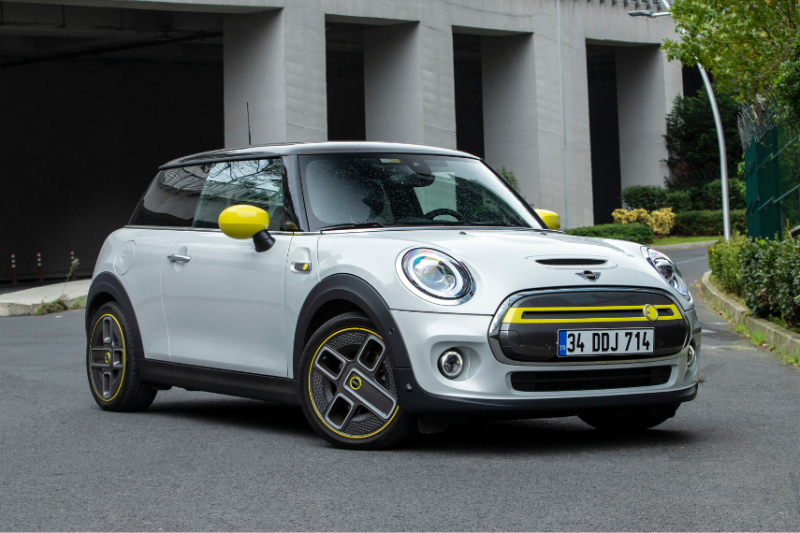
If you’re looking for a car outside of the traditional petrol and diesel range, it can be tough to decide what exactly you need.
Read our guide to figure out what kind of electric or hybrid car is best for you.
The difference between hybrid, plug-in hybrid and electric cars
It’s important to know the difference between the three kinds of alternative cars before making your purchase.
What’s a hybrid car?
A hybrid car (or self-charging hybrid) relies mainly on petrol or diesel to function but contains a battery that can provide a few miles of electric-powered driving here and there.
This battery doesn’t need to be plugged in for charging but is charged from the car’s regenerative braking system.
What’s a plug-in hybrid car?
Plug-in hybrids (also known as plug-in electric vehicles or PHEVs) also use petrol and diesel but are designed to be more reliant on electrical power.
These vehicles have a larger battery that provides electrically powered mileage.
This kind of battery needs to be charged using an external cable and outlet.
What’s an electric vehicle (EV)?
Electric vehicles (EVs) rely entirely on electrical power to function.
Like other vehicles, EVs have a small battery that starts the car, but also has a larger battery used for driving.
The pros and cons of EVs, hybrids and plug-in hybrids
Each of these vehicle types comes with its own set of ups and downs.
The pros and cons of hybrids
Pros
A key advantage of hybrids is that they can use traditional fuel, which can make filling up on the road easier.
You won’t have to look out for an EV charging station with these cars, as the electric battery is charged without external power.
These vehicles are also cheaper than PHEVs and EVs in most cases, and don’t need an external power source to power up the battery.
Cons
Hybrids can’t provide a lot of mileage using their battery alone, as they are still heavily reliant on petrol or diesel to function.
They are also often more expensive than vehicles that only use petrol or diesel.
The pros and cons of plug-in hybrids
Pros
Plug-in hybrids are a great option for those who want a mostly electric vehicle with the added backup of fuel power if needed.
These vehicles offer the best of both worlds, meaning that, if you can’t find an EV charging station, you can use the fuel in your tank to drive.
Plug-in hybrids also tend to have a greater range than EVs, as they benefit from both fuel-based and electric power.
Cons
Plug-in hybrids are more expensive than hybrids and typical petrol and diesel cars and rely on external charging to provide power to the battery.
They also can have a shorter electric-only range than EVs, as a portion of their total range is powered by fuel.
The pros and cons of EVs
Pros
EVs can be far cheaper to run than petrol and diesel cars.
According to ZapMap, the cost of charging an EV using one of the top 10 rapid charging networks in July 2024 varies between 55p per kWh and 85p per kWh. According to Statista, the price of unleaded petrol in July 2024 was £1.45 per litre, with the price of diesel sitting at £1.51 per litre. So, how would this price difference work in a real-life scenario?
A 2024 Mini Cooper Classic has a fuel capacity of 40 litres. With the petrol price previously mentioned, it would cost just over £60 to fill the tank.
On the other hand, a 2024 Tesla Model 3 has a battery capacity of 60 kWh (kilowatt-hours). Using an average of the charging price previously mentioned (i.e. 70p per kWh), it would cost £42 to fully charge your EV. So, you could stand to save a lot here.
Cons
EVs are often more expensive to buy outright, because they usually cost more to manufacture.
Additionally, EV roadside recovery isn’t yet as common as petrol and diesel vehicle roadside recovery. Make sure your breakdown service provides EV recovery before committing to anything.
If you live in a rural area, finding a public EV charging station can also be a challenge.
However, many public charging providers like PodPoint and Tesla provide maps of their charging stations so you can find the nearest one easily.
How to choose the best car for you
Choosing between a hybrid, plug-in hybrid and EV can be tricky.
There are some important factors to consider before making a decision:
- the budget for the vehicle purchase
- whether you’re buying a new or used vehicle
- your access to public EV/hybrid charging stations
- the price of repairs, MOTs and servicing
- available space for an at-home EV/hybrid charger
- your average weekly/monthly mileage in your car
How do I insure my EV, hybrid or PHEV?
Nowadays, you can quite easily insure an EV, hybrid or PHEV.
At Admiral, we offer electric car insurance for both electric cars and hybrids, though the kind of cover varies based on what kind of car you’re insuring. Please head to our EV car insurance page to learn more about our cover.


